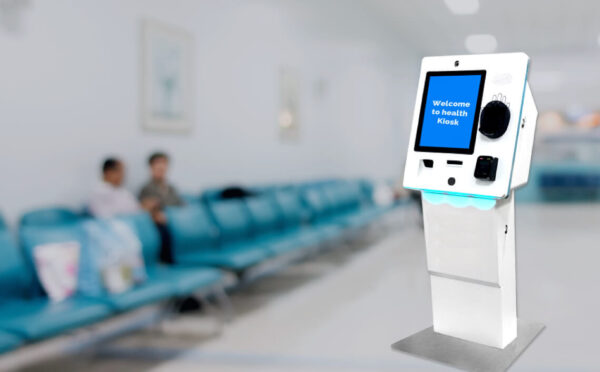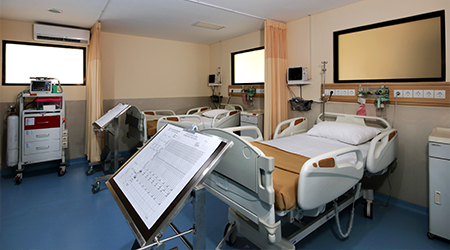Health
Fortis Escorts Heart Institute- centre of excellence in cardiology

Fortis Escorts Heart Institute, New Delhi is well known for its gratifying work as well as a service to the multitudinous heart patients. It is recognized as a leading unified healthcare delivery service provider in the country. At present, the hospital is recognized as a centre of excellence in cardiology and the expert team having four Padma Shri and Padma Bhushan awards. Fortis Escorts Heart Institute, New Delhi won many awards and acknowledged for Best private Cardiac Hospital in India by the WEEK magazine in 2014.
Best Cardiology Hospital at the ICICI Lombard in 2012
CNBC TV18 India Healthcare Awards in 2013.
The specialized programs at Fortis Hospital Delhi offered clinical greatness incorporated with grand technologies as well as innovations to offer the best treatment to all patients. The hospital has many advanced laboratories to perform tests in the field of biochemistry, transfusion medicine, nuclear medicine, radiology, hematology, and microbiology. Fortis Escorts Heart Institute, New Delhi is one of the best hospitals for cardiac care or adults as well as children and has celebrated 25 years of cardiac excellence in 2013. It has also launched Community Outreach Programs through which free cardiac check-up camps are also organized in India along with neighboring countries.
Infrastructure and other details
The Fortis Escorts Heart Institute, New Delhi houses more than 285 beds along with 5 Labs and other world-class facilities. It supports advanced laboratories and also holds expertise in
Intensive Electronic Medical Record
Audio Visuals & Smart Alert System as Rapid Response Tools that provides 24x7x365 monitoring, evaluation, hold up, and interventional services.
Infrastructure and other details
Fortis Escorts Heart Institute, New Delhi houses 285 beds along with 5 Cath labs. It also has a NABL Accredited Blood Bank too. The hospital has 200 cardiac specialists and 1600 support staff board who work altogether to handle about 14500 admissions and 7200 emergency cases annually. The hospital is a pioneer in the field of fully dedicated cardiac care in the country and is the only cardiac hospital in India to offer a committed Paediatric Department with a dedicated, extremely trained multidisciplinary lineup of Paediatric Surgeons, Anaesthesiologists, Paediatric Cardiologists, and Paediatric Intensivists.
List of top doctors in Fortis Escorts Heart Institute, New Delhi
Dr. Ashok Seth – Cardiac Surgeon and Chairman with 38 years of experience
Dr. Ashok Seth, Chairman in Fortis Escorts is one of the most recognized and respected Indian cardiologists all over the globe and was awarded the Padma Shri in 2003. He is well known and respected Cardiac Surgeon at Fortis Escorts Heart Institute Delhi with a thriving experience of 32 years. He has performed about 50000 angiograms as well as 20000 angioplasties and has also been featured in the Limca Book of records as he performed the highest numbers of f angiographies and angioplasties.
Dr. Savitri Shrivastava – Pediatric Cardiologist and Director with 59 years of experience
She is associated as Director at Fortis Escorts Heart Institute, Delhi. She established the Department of Paediatric cardiology as well as CHD here in 1995. She also helped in the establishment of the section of Echocardiography at AIIMS, New Delhi and carried out it at par. Her special interests are in Echocardiography, Paediatric and Congenital Heart Diseases, and Non-Coronary Interventions.
Dr. Krishna S Iyer – Pediatric Cardiologist and Director and has 30 years of experience
He is one of the leading paediatric cardiac surgeons in India and is famous for his clinical expertise and widespread participation in cardiac care for children in India and other countries. He has operated over 10000 babies along with children and adults with congenital heart diseases.
Dr. Surendra Nath Khanna- Cardiac surgeon, Director and has 25 years of experience
Dr. Surendra Nath Khanna is recognized as one of the leading Cardiac surgeons and is associated as the Associate Director, Department of Cardiovascular Surgery at Fortis Escorts Heart Institute. He expertise in Beating Heart Surgeries, Cardiac Valvular Surgery, Aortic valve, Double Valve Replacements, and Mitral Valve. He has special interest includes Aortic Aneurysm Surgery, Minimally Invasive Cardiac Surgery, Heart-Failure Surgery, and Valve Repairs.
Education
SGOT Full Form – What is the SGOT Full Form?

SGOT full form : सेरम ग्लुटामेट ओक्सालोएस्ट्रांस्फेरेज”। यह एक प्रकार का एंजाइम है जो मुख्य रूप से लीवर और हृदय में पाया जाता है। यह टेस्ट शरीर के इस एंजाइम के स्तर को मापकर, व्यक्ति के लीवर और हृदय की स्वस्थता की जाँच करने के लिए किया जाता है।
डॉक्टर एक व्यक्ति को SGOT टेस्ट करवाने के लिए कह सकते हैं ताकि उन्हें इस एंजाइम के स्तर में किसी बदलाव की जानकारी हो सके, जो विभिन्न लीवर और हृदय रोगों के संकेतों को पहचानने में मदद कर सकता है।
इस लेख के माध्यम से हमने SGOT का पूरा नाम और इस टेस्ट के महत्वपूर्णता के बारे में जानकारी प्रदान की है, ताकि लोग इसे समझ सकें और अपने स्वास्थ्य की देखभाल में सहारा ले सकें।

SGOT का पुरा नाम – SGOT full form
SGOT की full form Serum Glutamic Oxaloacetic Transaminase होती है।
S – Serum
G – Glutamic
O – Oxaloacetic
T – Transaminase
SGOT की Pronunciation
Serum – सिरम
Glutamic – ग्लूटामिक
Oxaloacetic – ऑक्सालोएसेटिक
Transaminase – ट्रांसएमिनेस
SGOT क्या होता है ?
SGOT का मतलब सिरम ग्लूटामिक ऑक्सालोएसेटिक ट्रांसएमिनेस होता है। यह एक प्रकार का एंजाइम होता है जो सामान्य रूप से ह्रदय कोशिकाओं और यकृत में मौजूद होता है। जब ह्रदय या liver क्षतिग्रस्त हो जाता है तो ब्लड में SGOT का flow हो जाता है।
Blood मे serum glutamic oxaloacetic transaminase का level दिल के दौरे या वायरल hepatitis की वजह से बढ़ जाता है या फिर SGOT का स्तर कुछ दवाओं के कारण भी बढ़ सकता है।
SGOT test क्या है ?
SGOT test एक blood test होता है जो liver profile का हिस्सा होता है। यह लीवर में मौजूद दो एंजाइमों में से एक एंजाइम को मापता है और वह एंजाइम SGOT अर्थात Serum Glutamic Oxaloacetic Transaminase होता है।
इस एंजाइम को AST भी कहा जाता है। AST का अर्थ होता है अस्पार्टेट एमिनोट्रांसफरेज़। SGOT यह मूल्यांकन करता है कि ब्लड में कितना यकृत एंजाइम है।
SGOT test क्यों किया जाता है ?
डॉक्टर SGOT test के द्वारा मुख्य रूप से लीवर की समस्याओं की जांच और आंकलन करते हैं। SGOT Full Form एंजाइम का निर्माण मुख्य रूप से लिवर में होता है। जब भी किसी कारण से लीवर खराब हो जाता है या बीमार हो जाता है तो एसजीओटी लीवर से रक्त प्रवाह में leak हो सकता है। यदि ऐसा होता है तो रक्त में level सामान्य से ज्यादा हो जाएगा।
अगर किसी व्यक्ति को गुर्दे या दिल की बीमारी है तो उस व्यक्ति में SGOT का लेवल विशेष रूप से अधिक हो सकता है। इस chance को कम करने के लिए डॉक्टर उसी समय लिवर एंजाइम की जांच करवाने के लिए कह सकते हैं।
यदि दोनों एंजाइम का लेवल अधिक है तो यह जिगर की समस्या का संकेत हो सकता है। SGOT का स्तर अधिक होने का मतलब इस बात का संकेत भी हो सकता है कि शरीर के किसी अन्य प्रणाली या अंग में समस्या हो।
स्वस्थ SGOT test की range कितनी होती है ?
डॉक्टर निम्न range को सामान्य स्वस्थ SGOT रेंज के रूप में स्वीकार करते हैं :-
पुरुष : – 10 से 40 unit प्रति लीटर
महिलाएं :- 9 से 32 यूनिट प्रति लीटर
SGOT test की आवश्यकता क्यों है ?
ब्लड में इस एंजाइम के level की जांच करने के लिए यह test किया जाता है। इस जांच के द्वारा डॉक्टर को ह्रदय, यकृत, गुर्दे, मांसपेशी आदि की क्षति का निदान करने में मदद मिलती है। आमतौर पर तब यह टेस्ट किया जाता है, जब किसी व्यक्ति में जिगर की क्षति के symptoms होते हैं और यह symptoms निम्न है :-
- सुजा हुआ पेट
- पीली त्वचा और आंखें
- गहरे रंग का मूत्र
- भूख में कमी
- पैरों और टखनों में सूजन
- हल्के रंग का पूप
इसके अलावा डॉक्टर के द्वारा SGOT test तब भी सुझाया जाता है, जब :-
- व्यक्ति को हेपेटाइटिस वायरस का संक्रमण हो।
- यदि कोई ऐसी दवा ले रहे हो जो लीवर पर नकारात्मक प्रभाव डाल रही हो।
- बहुत अधिक शराब का सेवन करते हो।
- जिगर की बीमारियों का कोई पारिवारिक इतिहास हो।
- मोटापा या मधुमेह हो।
- बरामदगी, अग्नाशयशोथ या फिर मांसपेशियों में चोट आदि लगी हो तो ऐसे में डॉक्टर व्यक्ति को एसजीओटी टेस्ट करवाने के लिए कहते हैं।
SGOT test की तैयारी कैसे करे ?
SGOT Full Form टेस्ट एक सामान्य ब्लड टेस्ट है जो तकनीकी रूप से बिना किसी विशेष तैयारी के किया जा सकता है। हालांकि, कुछ कदम हैं जो आप इस टेस्ट को सरल बनाने के लिए उठा सकते हैं, जैसे कि टेस्ट से दो दिन पहले टाइलेनॉल और अन्य कोउंटर दवाओं से बचें।
यदि किसी कारण से ओवर-द-काउंटर दवा की आवश्यकता होती है, तो आपको टेस्ट से पहले डॉक्टर को सूचित करना चाहिए। टेस्ट से पहले, आपको डॉक्टर को उन सभी दवाओं के बारे में सूचित करना अत्यंत महत्वपूर्ण है जो आप ले रहे हैं।
टेस्ट से एक रात पहले, अच्छी तरह से पानी पीना सुनिश्चित करें ताकि आप हाइड्रेट रहें। यह सुनिश्चित करने में मदद करेगा कि आपके रक्त को खींचना आसान हो।
ध्यान रखें कि आपके पहने हुए कपड़े बहुत टाइट नहीं हों, क्योंकि रक्त का सैंपल आपके बाजू से लिया जाता है। इसलिए, आधी कोहनी तक के कपड़े पहनना अधिक सुरक्षित हो सकता है, जिससे टेक्नीशियन को रक्त प्राप्त करना आसान हो।
निष्कर्ष :-
मित्रों, इस लेख में हमने SGOT Full Form का पूरा नाम विस्तार से जानने का प्रयास किया है। urstoryiq.com हम आशा करते हैं कि यह लेख आपके लिए सहायक साबित होगा। यदि इस लेख से संबंधित कोई भी प्रश्न हो, तो कृपया हमें टिप्पणी के माध्यम से बताएं।
यदि आप किसी अन्य विषय पर जानकारी चाहते हैं, तो आप वह भी हमसे कमेंट करके साझा कर सकते हैं। अगर आपको जानकारी पसंद आई हो, तो कृपया इस लेख को अधिक से अधिक साझा करें।
FAQ’S :-
Q1. SGOT test मे sample type क्या रहता है ?
Ans. इसमें blood sample लिया जाता है।
Q2. SGOT test से पहले खाली पेट रहना आवश्यक है ?
Ans. नही
Q3. SGOT test report क्या दर्शाती है ?
Ans. यह liver कोशिकाओं को नुकसान की मात्रा का संकेत देती है।
Q4. क्या SGOT 70 समान्य है ?
Ans. नही, समान्य SGOT 7 - 56 unit प्रति लीटर होता है।
Q5. SGOT के लिए blood sample कैसे लिया जाता है ?
Ans. हाथ की नस से Check Out : CR Full Form – What is CR Full Form
Health
ICU Full Form: Intensive Care Unit
Health
Why is it important to install health kiosks?

Installing health kiosks has become increasingly important in recent years because of the many advantages they provide to patients and healthcare providers alike. This health atm kiosk is important to expand access to healthcare, promote preventative care, and enable people to manage their health. In this post, we are going to tell you about health kiosks and their advantageous effects on the provision of healthcare.
- Enhance accessibility
Accessibility is improved for individuals by placing health kiosks in a variety of public locations, including pharmacies, shopping malls, workplaces, and hospitals. Health ATM eliminate location barriers and guarantees that people may quickly obtain basic healthcare services wherever they are by providing easily accessible points of care.
- Convenience and effectiveness
Health kiosks provide a quick and effective way to get medical care. They give people the freedom to monitor their vital signs, perform quick health evaluations, and get rapid feedback whenever it’s convenient for them. Because health kiosks are self-service, there is no need to make appointments, stand in line, or spend huge amounts of money.
- Early Detection and Preventive Care
For better health outcomes, early Detection and Preventive Care are essential. Individuals can regularly measure health indicators and monitor their vital signs thanks to the health atm kiosk. People can see potential health hazards or variations from normal limits by routinely evaluating variables like blood pressure, heart rate, weight, or BMI.
Early detection enables people to consult healthcare professionals, seek medical care, adjust their lifestyles as needed, or both. In this way, it encourages preventative care and lowers the risk of more significant health consequences.
- Empowers the patients toward their health
The use of health kiosks as a platform for health education and empowerment promotes both. They offer access to tools, videos, and interactive content on numerous health-related topics.
Health atm kiosks enable people to make informed decisions about their health, adopt healthier habits, and actively participate in maintaining their well-being through encouraging health literacy. This sharing of information encourages a sense of personal ownership and accountability for one’s health.
- Healthcare Delivery at a Reduced Cost
Setting up health kiosks can help with healthcare delivery at a reduced cost. Health kiosks relieve pressure on conventional healthcare institutions by offering self-service healthcare options, freeing up resources for more specialized care.
Additionally, health atm kiosks can aid in the early detection of health problems and reduce the chance of illness that leads to critical treatments for patients. Health kiosks are a valuable addition to healthcare systems because of how reasonably priced they are, especially when it comes to lowering overall healthcare costs and optimizing resources.
Conclusion
Setting up health kiosks is crucial for expanding access to healthcare, promoting preventative care, and enabling people to take an active role in maintaining their health. These self-service tools facilitate early identification and preventive interventions while improving accessibility, convenience, and time effectiveness.
Additionally, health kiosks help with patient-centered treatment, cost-effective healthcare delivery, and health education.
-
Technology6 years ago
Developing Workplace Face Recognition Devices and Controls
-

 Business News5 years ago
Business News5 years agoFacts to know about commercial closing
-
Home Advice6 years ago
Things to Remember When Shopping For Recycled Plastic Adirondack Chairs
-
Technology6 years ago
Use WhatsApp Web Login on PC
-
Entertainment6 years ago
Meanings of WhatsApp Symbols, Emoticons
-

 Education5 years ago
Education5 years agoHuman Body And Its Interesting Features
-
Entertainment6 years ago
Ganesh Chaturthi Songs (Mp3, DJ Songs, Remix) Ganpati Songs Free Download
-

 Sports News4 years ago
Sports News4 years agoHow to Build a Perfect Fantasy Cricket Team?









